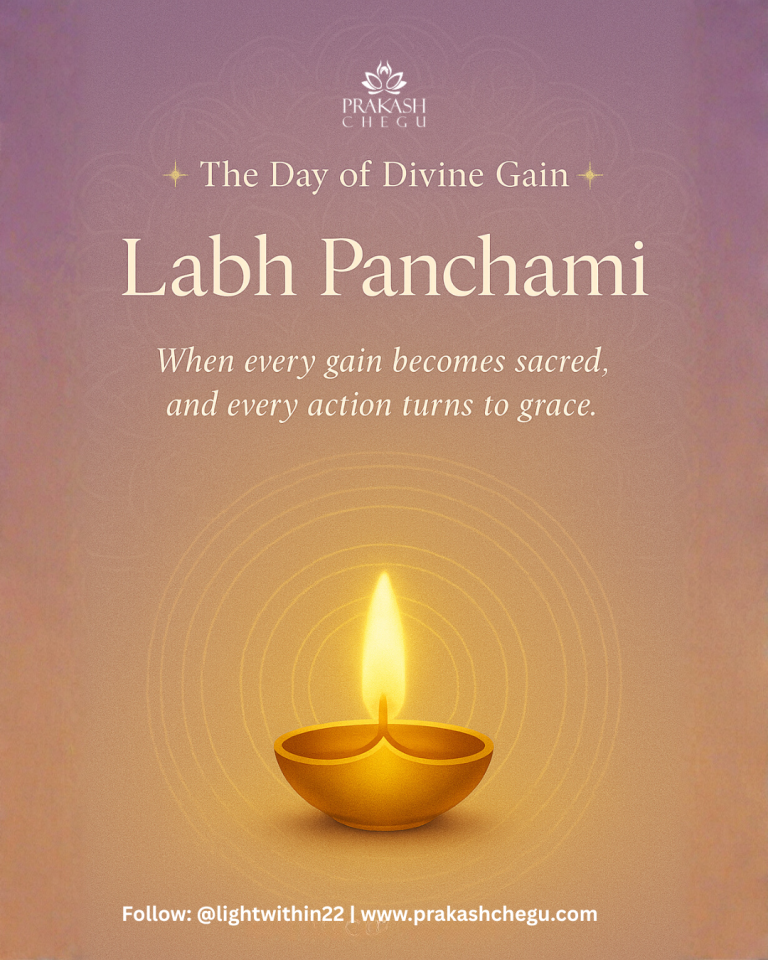Putrada Ekadashi: Blessings, Children and New Life
Ekadashi is the eleventh day after the full or new moon and is considered a powerful day for spiritual acceleration. Among the 24 Ekadashis observed each year, Putrada Ekadashi holds a special place in the hearts of devotees. There are two Putrada Ekadashis: one in the Pausha month (Dec–Jan) and another in the Shravana month (Jul–Aug). While the Pausha Ekadashi is revered for its depth of spiritual rebirth, the Shravana Putrada is especially beloved by couples longing for a child. Both, however, offer profound blessings of renewal and dharma.
🌳 A King’s Despair and a Divine Solution
The Bhavishya Purana tells the story of King Suketuman and his queen, who ruled the kingdom of Bhadravati. Despite their wealth and goodness they were sorrowful—no child was born to carry on their lineage. In Vedic culture, to have no heir was believed to create a break in the ancestral line (pitru rin). Desperate, the king wandered into the forest and met sages who advised him to observe Putrada Ekadashi with full faith and devotion. He did. In due time a radiant son was born, destined to be both a great king and a spiritual leader. This story is why Putrada Ekadashi is still considered the most powerful day to seek blessings for a child—biological or spiritual.
👶 Putrada = “The One Who Gives Putra”
The word putra has layered meanings:
- Literally, it means “son” or “child”—especially one who continues the spiritual lineage.
- Spiritually, putra refers to the fruits of karma, soulful creations and anything that brings light into your future.
Thus, even those who aren’t seeking a physical child can use Putrada Ekadashi to birth new life:
- A creative project
- A relationship healed
- A generational curse lifted
- A dream finally manifested
🔉 Rituals of the Day
On Putrada Ekadashi devotees observe specific practices to align with divine grace:
Fasting (Upavasa). The primary vow is to abstain from grains, beans and processed food—tamasic to the mind. Some observe a full fast; others consume fruits, nuts and milk.
Chanting & Prayers. Devotees chant the Vishnu Sahasranama, offer Tulsi leaves, lamps (deepa) and flowers to Lord Vishnu, recite the Putrada Ekadashi Vrat Katha (the story behind the fast), and offer water and prayers to Pitru (ancestors).
Special affirmation:
“O Vishnu, sustainer of life and protector of dharma, may my lineage flourish in purity, and may I be reborn in alignment with truth.”
✨ Why Yogis and Spiritual Seekers Honor This Day
Even if you are not praying for children, Putrada Ekadashi has deep meaning:
- Kundalini practitioners honor this day to release karmic blocks inherited from ancestors (DNA → karma naadi).
- Spiritual healers use it for ancestral healing and soul contracts.
- Parents and teachers pray for the well‑being, evolution and dharmic path of the next generation.
It is a day to reflect on your legacy—not just in bloodline, but in action, vibration and intention.
🌙 The Power of Ekadashi Itself
On every Ekadashi the subtle currents of prana flow differently through the body. This lunar influence shifts our consciousness toward clarity, introspection and devotion. Putrada Ekadashi magnifies this flow toward new beginnings, especially those aligned with your soul’s next chapter.
💫 Final Thought
Whether you are a parent, a seeker, a creator or someone trying to break free of past patterns, Putrada Ekadashi is a gateway—to receive, to release and to remember your original light. Fast with intention. Pray with devotion. Align with your dharma. The Universe responds to sincerity—always.
May this Ekadashi bring blessings of divine children, inner joy and a future full of light to all who walk the sacred path.
Jai Shri Vishnu. Jai Putrada Ekadashi.






